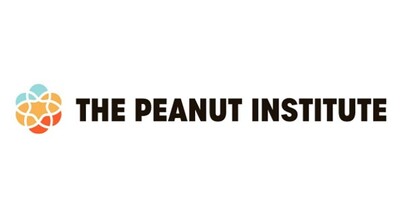New Research Points to Potential Dietary Tool to Protect Against Cellular Aging
ALBANY, Ga., April 23, 2025 /PRNewswire/ -- Research from the University of Barcelona and CIBEROBN indicates that the consumption of skin roasted peanuts can potentially protect against accelerated cellular aging and promote longevity in young adults. The six-month ARISTOTLE study found that the consumption of peanuts with the skins on may increase telomere length and protect against telomere shortening. The findings were published online April 14 in the international, peer-reviewed journal Antioxidants and shared by the The Peanut Institute.
Telomeres are protective structures found at the ends of chromosomes and are essential to maintaining the stability and integrity of chromosomes. Shorter telomeres are often associated with an increased risk of age-related diseases and decreased lifespan.
The ARISTOTLE study of 58 healthy adults between the ages of 18 to 33 showed significant differences in telomere length changes between a group who ate skin roasted peanuts and a control group, suggesting that peanut consumption may positively influence telomere length. Telomere length was measured by quantitative real-time PCR (polymerase chain reaction) test in saliva at the beginning and end of the study. The skin-roasted group ate 25 grams of peanuts daily as part of their regular diet.
"The benefits observed may be attributed to several interconnected mechanisms," says Dr. Sílvia Canudas, one of the lead researchers and a professor with the Department of Nutrition, Food Sciences and Gastronomy at the University of Barcelona. "Whole peanuts are naturally rich in polyphenols like m-coumaric acid, with antioxidant properties that may help mitigate oxidative stress, a key driver of cellular aging and telomere shortening. Additionally, the dietary fiber matrix in whole peanuts may affect gut microbiota, enhancing polyphenol bioavailability."
Another consideration is that peanut consumption may modulate molecular pathways involved in telomere maintenance by reducing inflammation, enhancing antioxidant defense systems and promoting healthy cellular metabolism, all of which could support telomere preservation over time.
"This research indicates that incorporating peanuts into a daily diet could promote cellular health and aid overall well-being in young, healthy individuals, contributing to preventive health," says Dr. Rosa M. Lamuela-Raventós from the University of Barcelona. "However, further studies are needed to better understand the underlying mechanisms and to validate the findings across diverse populations and over extended periods."
Peanut butter did not show a protective effect on telomere length in this study. More research is needed to better understand how peanut butter affects telomere length in diverse populations.
Peanuts at a Cellular Level
Peanuts are packed with antioxidants, especially polyphenols like resveratrol and coumaric acid, which play a significant role in fighting oxidative stress in the body. Oxidative stress occurs when there's an imbalance between free radicals and antioxidants, leading to cell damage, which can contribute to aging and various diseases. The antioxidants in peanuts help neutralize free radicals, protecting cells and potentially reducing the risk of chronic diseases like heart disease and cancer.
The ARISTOTLE study was supported by funding from The Peanut Institute, PID2020-114022RB-I00 and CIBEROBN from the Instituto de Salud Carlos III, ISCIII from the Ministerio de Ciencia, Innovación y Universidades, (AEI/FEDER, UE), Generalitat de Catalunya (GC) [2021-SGR-00334]. INSA-UB is Maria de Maeztu Unit of Excellence (grant CEX2021-001234-M funded by MICIN/AEI/FEDER, UE). None of the funders had a role in the study design, implementation, analysis or interpretation of the data or the writing of the manuscript.
Based in Albany, Ga., The Peanut Institute is a non-profit organization supporting nutrition research and developing educational programs to encourage healthful lifestyles that include peanuts and peanut products. The Peanut Institute pursues its mission through research programs, educational initiatives and the promotion of healthful lifestyles to consumers of all ages. As an independent forum, The Peanut Institute is uniquely positioned to work with all segments of the food industry, the research community, academia, consumer organizations and governmental institutions.
Source:
Torres-Oteros, D.; Parilli-Moser, I.; Laveriano Santos, E.P.; Becerra-Tomás, N.; Sanz-Lamora, H.; Hurtado-Barroso, S.; Haro, D.; Marrero, P.F.; Lamuela-Raventos, R.M.; Relat, J.; Canudas.S. Unveiling the Impact of Peanut Consumption on Telomere Length in Young and Healthy Individuals: Insights from the ARISTOTLE Study: A Randomized Clinical Trial. Antioxidants 2025, 14, 467. https://doi.org/10.3390/antiox14040467
![]() View original content to download multimedia:https://www.prnewswire.com/news-releases/new-research-points-to-potential-dietary-tool-to-protect-against-cellular-aging-302436123.html
View original content to download multimedia:https://www.prnewswire.com/news-releases/new-research-points-to-potential-dietary-tool-to-protect-against-cellular-aging-302436123.html
SOURCE The Peanut Institute



